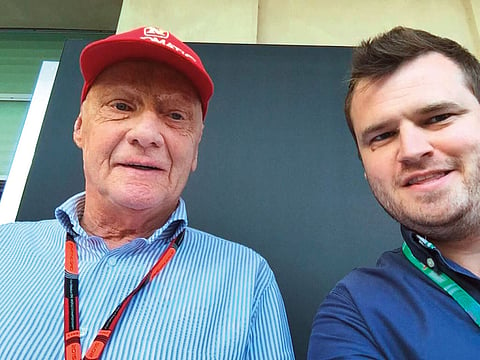The loss of the one man who bound F1’s past with its present
Lauda was no-nonsense, unapologetic, uncompromising and truly brilliant

Dubai: Abrasive and uncompromising, but that’s exactly why I wanted to speak to him, to gain that badge of honour of having held on during F1’s journalistic equivalent of riding the bucking bronco, and surviving to tell the tale.
Given all that he had been through and come back from, Niki Lauda, in his distinctive red hat, emitted an intimidating and unapproachable presence.
Door-stepping anyone in the paddock is a bad idea, but with him it seemed suicidal.
It was 2015, world champion Lewis Hamilton had just crashed his supercar in Monte Carlo after a night of partying, and his old boss Ron Dennis had essentially criticised Hamilton’s new boss Lauda as being too soft on him.
Spot the awkward pretext to my question, and imagine the trepidation in my voice as I ask it. “He doesn’t know what he’s talking about,” snapped Lauda, who went on to imply that he and his great rival James Hunt partied much harder — instant headline, instant gratification. Every word that came out of his mouth unapologetically no-nonsense and gold. It was just a case of keeping him going.
With the exception of Alain Prost — and with Ayrton Senna and Hunt both gone — there weren’t many left around the outskirts of F1 from the real days of racing, who could really tell it like it was. Now there are even less and F1 has lost a true character that actively bound the sport’s past with its present. His injuries from that horrific 1976 fireball and his ability to come back from the brink within six weeks to go on and win subsequent titles made him fear controversy and hurt feelings even less. It may have been my shortest Dictaphone recording ever, but it remains my most memorable, I just wish I could have kept him talking longer but Niki had places to be.
Sign up for the Daily Briefing
Get the latest news and updates straight to your inbox



